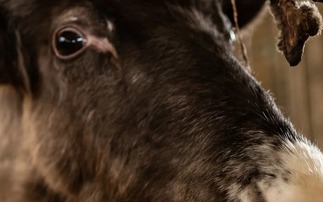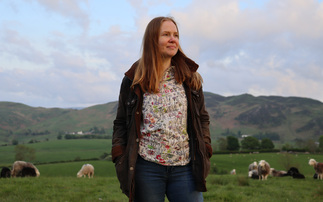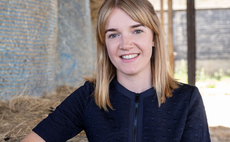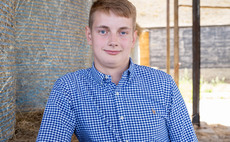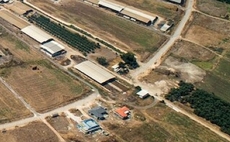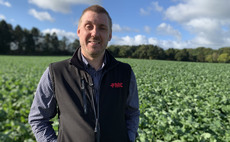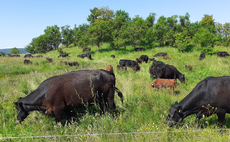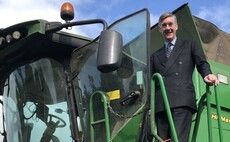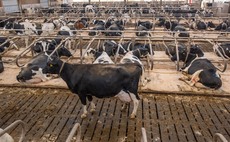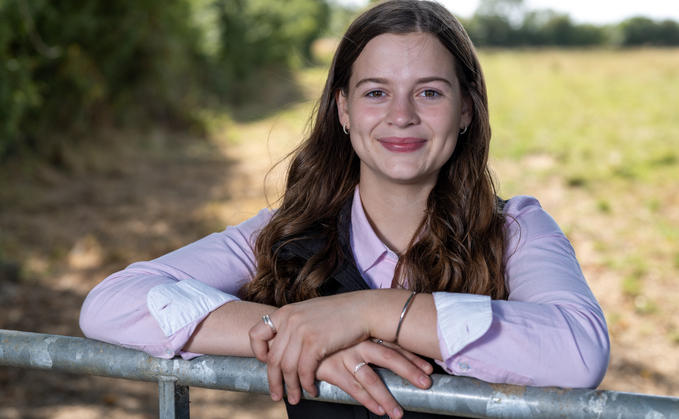
Laura Beaton
Coming from a family farm in North Yorkshire, where my parents diversified from farming, running a farm shop and outside catering business for 22 years until they closed last September due to increasing electric costs. They then set up a butchery to continue supply of our own meat to new and existing customers. I have grown up in the food and agricultural industries, so the supply chain is second nature to me. Working for McDonald's and OSI Food Solutions has taught me how the beef supply chain works on such a vast scale to prepare beef in a sustainable manner to feed the growing population.
I am very fortunate that my parents have encouraged me to work hard and try different things, and without this I would not be where I am today. When I had completed my final GCSE exam I went to work away on a farm on Pen-y-ghent for a family that I had not previously met. Not only did I learn about hill farming, but this shaped me, my confidence and my passion for agriculture. From this, in sixth form and university holidays I have worked on other farms, living away from home for periods of time, with the aim of gaining as much experience as possible to broaden my horizons and meet likeminded people along the way.
After seeing the job advert for the McDonald's Progressive Young Farmer placement on the Harper Adams website, I knew this was a great opportunity to work for one of the world's largest food service retailers. As I am still not certain on what I want to do in the future, this placement has given me the chance to experience the various roles involved with beef production in the UK, all of which I have found fascinating. The scheme has introduced me to roles that I had never previously considered within the agricultural industry, and it makes me think that if more people get the chance to see even part of what I have, then how many new people would want to work in one of the many jobs that they would have not previously been aware of?
Diversity and inclusion are ever-growing topics, and there is currently a big focus on presenting people from non-agricultural backgrounds with opportunities to get into the industry, but what about young people from farming families? The current average age of UK farmers is 59 years old; many farmers keep on working until their final years which really shows that it takes a certain type of hard working and dedicated person to be in the demanding job. However, this limits the possibilities for the younger generation. I personally cannot see myself working at home, as we only have a small farm and there is simply not enough work for me to be there full time. I have always wanted to go and do my own thing, whatever that may be. I know that I am not the only person in this position, and being at an agricultural university presents these connections for students. But, not everyone goes to university, so I strongly believe that more needs to be done to give the wider farming community a chance to pave their own way and not have to spend their lives farming in their parents' shadows.
As a young woman involved in the agricultural and red meat sectors, I personally do not feel that my gender is a limiting factor, maybe because when faced with challenges I become more determined to push myself and achieve my goals. Throughout my placement year so far, I have spent most of my time working in manufacturing in this male dominated industry. At the beginning of my placement, I worked in the patty factory in all aspects of production. In the grinding section, where heavy bins of meat are emptied out of the mincers and pushed to the next stage of production, I worked with one man who said, ‘in seven years of doing this job, I have never seen a girl even attempt it'. This comment shocked me, and the fact that there is a speculation that women cannot do jobs that require physical labour like this, when in fact when you put your mind to something anything is possible.
When customers buy a burger in McDonald's, the hundreds of people involved in its production are rarely considered. Working with the chain of great people who spend their lives producing high quality British beef is eye opening. From the farmer who bred the cattle and reared them, the hauliers who transport them to the abattoir, the lairage workers whose main priority is animal welfare so the cattle are all calm and well looked after in their final moments of life, every single abattoir worker on each stand carrying out different jobs to process the carcass to high standards, boning hall staff butchering the meat along the line, dispatch workers, the lorry drivers transporting the meat to further processing, all of staff working as a team to produce the final products, sales, marketing, HR - the list is endless. So, next time you buy a Big Mac, in your 50 second wait, take a moment to consider the hard work that has gone into the production of your tasty meal, as well as the potential careers for you to go into, linking back to knowing where your food has come from, and understanding the high quality that it is produced to.
This placement with McDonald's and OSI has taught me more than I imagined and has opened many doors for me. I would recommend this placement to anyone as it is a great insight to the supply chain and how the industry is developing.












